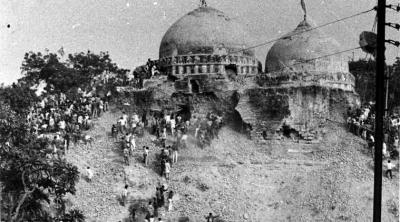
Bureaucratic Archaeology: State, Science, and Past in Postcolonial India – A book excerpt

The following is excerpt from Ashish Avikunthak’s Bureaucratic Archaeology: State, Science, and Past in Postcolonial India. The book is a multi-faceted ethnography of quotidian practices of archaeology, bureaucracy and science in postcolonial India, concentrating on the workings of Archaeological Survey of India (ASI). The following chapter explores the issue of the excavation of Ram Janmabhoomi– Babri Masjid complex in Ayodhya and the politics surrounding it.
It was in the dry winter of 2003 at Dholavira, when I met ASI archaeologists and technical staff who had excavated the disputed site of the Ram Janmabhoomi– Babri Masjid complex in Ayodhya. Speaking about the Ayodhya excavation was prohibited. It was not a mere taboo, but illegal. Everyone who had worked at Ayodhya had signed a High Court prohibitory order—it was forbidden to divulge any details about excavation. A draughtsman—a 15 years’ veteran of the ASI in hushed tones rebuked me: “Why are you troubling [taqleef] me? I have to support my children, sir [bibi-bache hai, saheb]. The court has forbidden [mana hai] us to talk about the excavation. It is too sensitive [English word used].” It was less than four months after the Ayodhya excavation and trepid reluctance was in the air. Most of my informants were frightened to speak, but some whose confidence I had gained did…
Related Posts


Donald Trump’s Master Economic Plan I Opinion by Yanis Varoufakis




